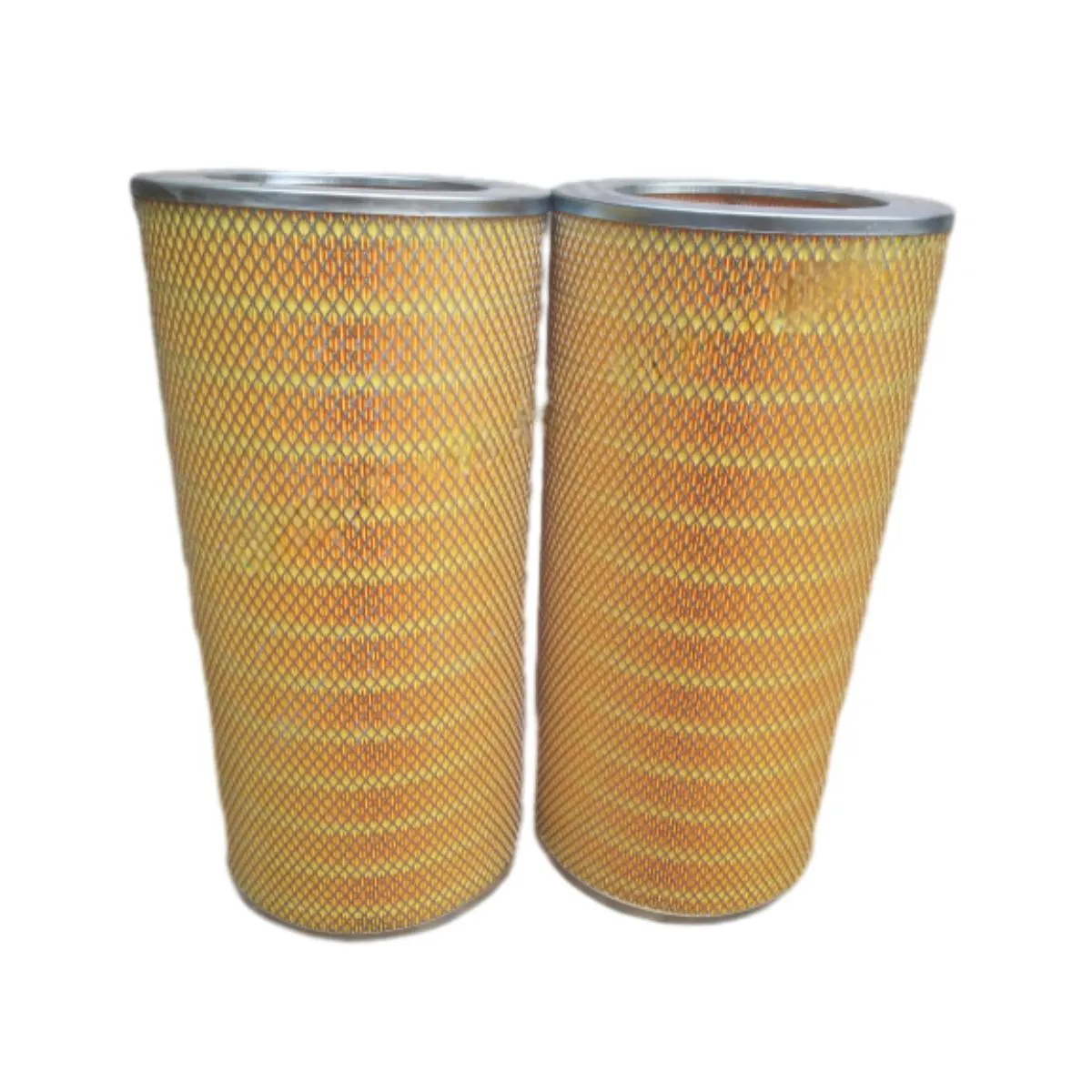 Tel:
+8615930870079
Tel:
+8615930870079
Nov . 07, 2024 12:20 Back to list
Cellulose Air Filter Cartridge for Enhanced Car Performance and Air Quality
The Rise of Cellulose Air Filter Cartridges in Automotive Applications
In recent years, the demand for efficient air filtration systems in automobiles has surged, driven by increasing air pollution and a heightened awareness of environmental issues. Among various filter materials available, cellulose air filter cartridges are gaining popularity due to their unique properties, sustainability, and cost-effectiveness. This article delves into cellulose air filter cartridges, their benefits, applications, and the underlying principles that make them an attractive choice for automotive manufacturers and consumers alike.
Understanding Cellulose as a Filter Material
Cellulose is a natural polymer derived from plant cell walls and is one of the most abundant organic compounds on Earth. It is renowned for its biodegradability and renewability, making it an environmentally friendly option compared to synthetic materials. Cellulose fibers can trap airborne particles and contaminants effectively, providing efficient filtration.
Furthermore, cellulose is relatively inexpensive to produce, which makes it a cost-effective choice for automotive manufacturers. The manufacturing process involves converting wood pulp into a fibrous medium that can be woven or pressed into sheets for air filter cartridges. These cartridges can capture pollutants like dust, pollen, and particulate matter, ensuring that the engine operates efficiently and prolonging its lifespan.
Advantages of Cellulose Air Filter Cartridges
1. High Filtration Efficiency Cellulose air filter cartridges exhibit excellent filtration capabilities. Their fibrous structure allows for the effective capture of both large and small particles. This ensures that the engine breathes cleaner air, leading to better performance and reduced emissions.
2. Biodegradability One of the standout features of cellulose filters is their environmental friendliness. Being made from natural materials, these cartridges can decompose without leaving harmful residues, hence aligning with the growing trend toward sustainability in automotive manufacturing.
3. Cost-Effective Compared to synthetic media, cellulose filters are more affordable to produce and purchase. This makes them an appealing option for consumers looking to maintain their vehicles without breaking the bank.
4. Wide Availability Cellulose air filter cartridges are widely available for various vehicle makes and models. This accessibility makes it easier for consumers to find suitable replacement filters that fit their specific needs.
cellulose air filter cartridge

5. Compatibility Many automobile manufacturers recommend cellulose filters due to their compatibility with various engine types and designs. They can enhance engine performance while providing excellent protection against contaminants.
Applications in the Automotive Industry
Cellulose air filter cartridges are predominantly used in automotive engines, particularly in passenger vehicles, trucks, and SUVs. They serve as essential components in the air intake system, ensuring that only clean air enters the engine. This filtration plays a critical role in optimizing fuel combustion, which can lead to better fuel efficiency and lower emissions.
Additionally, cellulose air filters are utilized in cabin air filtration systems, which improve air quality for passengers. These filters capture dust, pollen, and other allergens, promoting a cleaner and healthier driving environment.
The Future of Cellulose Air Filters
As the automotive industry moves toward more sustainable practices, cellulose air filter cartridges are poised to play an increasingly significant role. With advancements in filter technology, manufacturers are exploring ways to enhance the performance of cellulose filters while maintaining their eco-friendly characteristics. Innovations may include the development of hybrid filters that combine cellulose with other materials to achieve higher filtration efficiency without compromising sustainability.
Moreover, as consumer preferences shift towards environmentally friendly products, companies that prioritize the use of cellulose filters are likely to gain a competitive edge. This shift not only benefits the environment but can also contribute to improving public health by reducing vehicular emissions.
Conclusion
Cellulose air filter cartridges represent a sustainable and effective solution for air filtration in the automotive industry. Their natural origin, cost-effectiveness, and impressive filtration efficiency make them an appealing choice for manufacturers and consumers alike. As the automotive landscape continues to evolve towards greener technologies, cellulose filters are likely to become a staple in air filtration systems, paving the way for cleaner air and a healthier planet. Embracing such innovations is crucial as we strive to mitigate the environmental impacts of our transportation systems, ensuring a better future for generations to come.
-
Types and Applications of Air Filtration CartridgesNewsJul.28,2025
-
The Role of Gas Turbine FiltersNewsJul.28,2025
-
Mastering Air Filter Cartridge UseNewsJul.28,2025
-
Advanced Turbine Filters for Modern Gas TurbinesNewsJul.28,2025
-
Cellulose Air Filter Cartridge Advantages in Dust FiltrationNewsJul.28,2025
-
Cellulose Filters for Air Particle ReductionNewsJul.28,2025

 Email:
Email:





